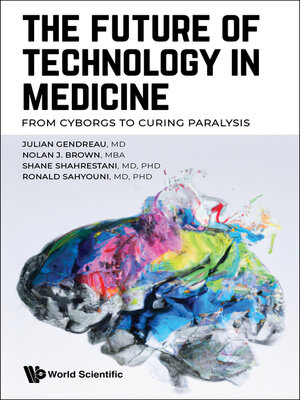
Sign up to save your library
With an OverDrive account, you can save your favorite libraries for at-a-glance information about availability. Find out more about OverDrive accounts.
Find this title in Libby, the library reading app by OverDrive.



Search for a digital library with this title
Title found at these libraries:
| Library Name | Distance |
|---|---|
| Loading... |
What is machine learning? What is the current state of prosthetics in healthcare? Can scientists cure paralysis? Are supercomputers composed of human DNA real?These are all questions contemplated by both highly educated biomedical engineers and individuals without formal scientific training that have simple interests in medicine. Technology, undoubtedly, has given rise to advancements in many diverse areas of our lives today. It has led to improvements in the ways we complete business transactions, the ways we use social media to connect with others, and in the methods we use to treat patients in medicine. This is especially true, when examining neuroscience approaches in technology, otherwise known as neuroengineering. Concepts such as machine learning and artificial intelligence will one day assist practitioners in making more accurate and superior medical diagnoses. Novel prosthetics are currently being devised utilizing intracranial brain computer interfaces to recreate patient thoughts for controlling these prosthetics. Supercomputers, composed of human genetic material, are being utilized to make processing speeds faster than current computers by magnitudes of speed. With all of these advancements, medical technology is a burgeoning and interesting area of study.In this book, the authors discuss these technological advancements of healthcare in 14 comprehensive chapters specifically designed to be read and understood by any individual interested in learning more about technology in medicine. Co-author, Nolan Brown has over 100 peer-reviewed publications in the neurosurgical and neuroengineering literature. Dr Shane Shahrestani MD, PhD, participated in the world's first portable stroke detection device utilizing magnetic fields. He currently has NIH grant funding for the device. Dr Ronald Sahyouni MD, PhD, has novel work in myoelectric prosthetic devices. From discussing topics such as creating the first human cyborgs, to discussing topics on humankind's first attempt at curing paralysis, this book takes an informative approach to educate interested individuals regardless of their educational background.







